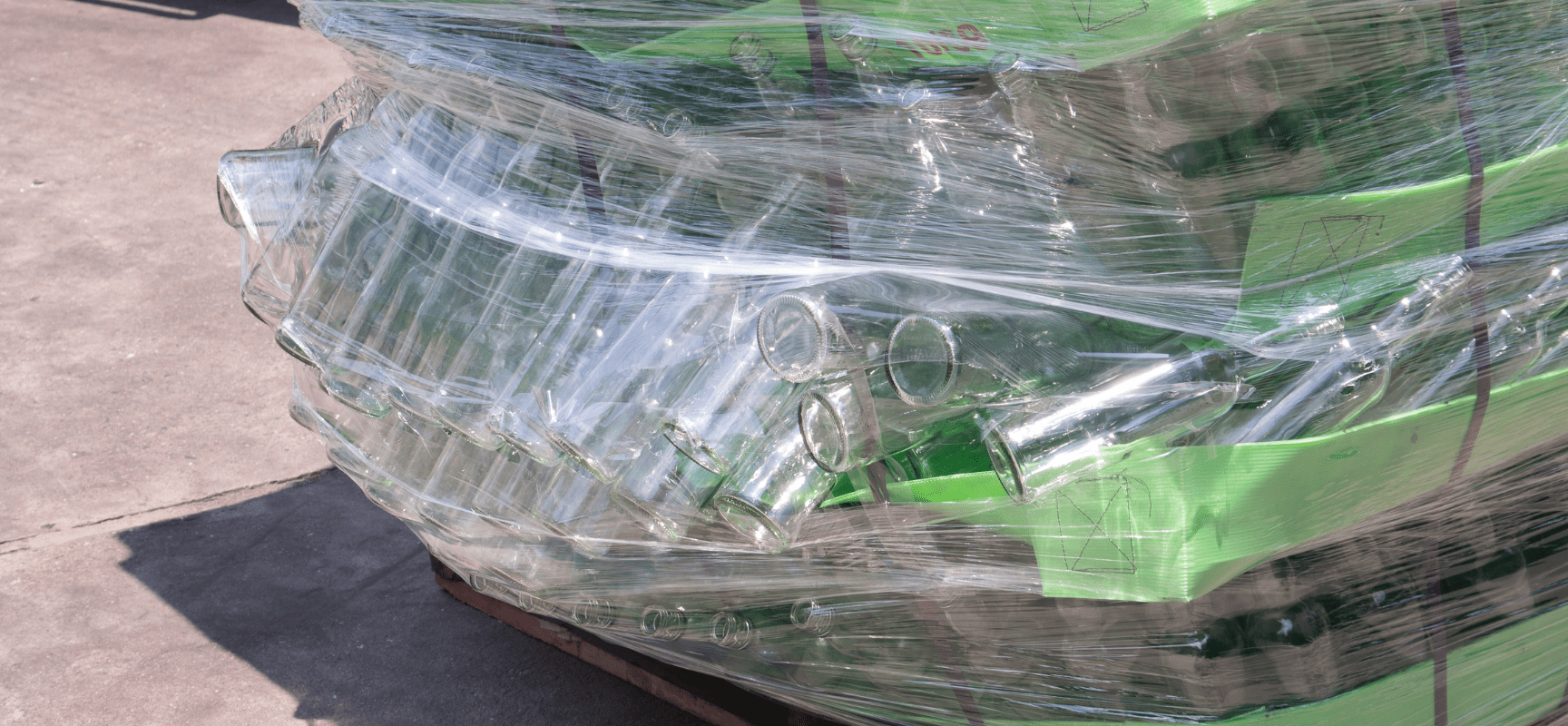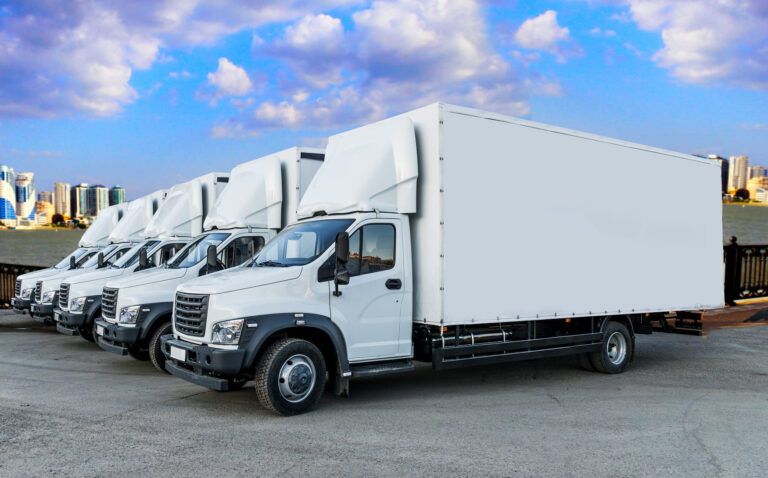What Is Pallet Rework?

Transporting products across the country comes with significant risk, like destructive pallet shifts. Merchandise, from glass bottles to boxes, can consequently break or be crushed. A pallet rework is necessary to identify the issue and sort and balance the products to prevent a second pallet shift.
What is the standard trailer size?
Goods are shipped in the trailers of massive trucks. In North America, the most common trailer size is 53 feet. A large trailer capacity is stacked with palletized freight. When the trailer reaches full capacity, the large number of pallets can shift and cause issues for the shipper.
What is the standard pallet size?
The size of a standard pallet is 48 inches long, 40 inches wide and 48 inches in height. Knowing the pallet dimensions helps to determine how many can securely fit into the truck. Pallets can be stackable or not stackable and either exceed or be the standard height.
Are the pallets stackable?
If the pallets are stackable and less than 48 inches in height, the trailer space is maximized by stacking the pallets on top of one another. Stacking the pallets poorly, however, can cause the merchandise to shift and break or otherwise become damaged—which necessitates pallet rework.
How many pallets fit into a truck?
Twenty-six non-stackable pallets fit into a typical 53-foot truck. If the pallets are stackable, 52 standard-size pallets will fit into the truck. The size of the pallets influences how many can fit into the truck. Regardless of the number of pallets, care is essential to preventing damage.
How do pallet goods become damaged?
The greater the number of pallets stacked inside the truck, the higher the risk for merchandise becoming damaged during transport. The damage may result from numerous common causes, such as broken or partially broken pallets, poor shrink-wrapping, pallet overhang, and pallet underhang.
Additionally, the freight may exceed the pallet’s weight limit. Or, the pallet may fail to be a safe height. Visible damage and shifted loads happen often. Rejected shipments and extra costs to the shipper arise when the shipment is compromised. When pallet goods are damaged, pallet rework is necessary.
What type of damage can occur during shipment?
Issues with delivery develop when one or more pallets shift. When the trailer load shifts, the pallets shift or floor loads move and the goods can break or spill. The cargo may become ruined or unsalvageable. Delivery delays, inventory problems, and lost revenue wreak havoc for the shipper.
What is pallet rework?
Pallet rework is essential when cargo problems arise. A pallet rework involves housing the damaged merchandise in a secure warehouse and reworking them. The goods are inspected and sorted. Pallet rework also involves the crucial step of determining how the problem initially arose.
The damaged pallets are broken down during pallet rework. The cargo is rebalanced to prevent it from shifting again. Damaged pallets, goods, and packaging are discarded. Destroyed products are separated from intact ones and prepared for storage. Then they are redelivered to the client.
Why is it beneficial to partner with a logistics service?
Partnering with a third-party logistics service to perform the pallet rework is cost-effective. Shippers avoid the increased cost of having to reroute the freight, rework it, or discard it. Pallet rework can be done quickly, thereby saving the shipper angst and the shipment itself.
What are best practices to avoid shipment problems?
1. Avoid Pallet Overhang and Underhang
Pallet overhang and underhang are caused by an imbalance. As a result of this imbalance, the pallet shifts, tilts, or collapses. Preventing overhang and imbalance requires that the pallet be stacked carefully and neatly; the goods should not exceed the pallet’s four sides.
Imbalance issues caused by underhang are equally disastrous, despite how well the cargo is shrink-wrapped. For example, if the merchandise fails to fit the pallet base, gaps are left behind. These gaps contribute to shifting, which in turn leads to potential damage during transport.
2. Prevent Rejected Freight
Preparing pallets should be done with care to avoid potential problems, like rejected freight. Stacking the pallets too high can cause them to tip over, resulting in damage to the load. All goods should be properly shrink-wrapped to prevent them from shifting.
A customer can reject the shipment if the weight capacity on the pallets exceeds what is recommended. Building up a pallet with underhang or overhang, as mentioned, can lead to issues. Shippers should obtain the required pallet restrictions from the customer to avoid potential rejection or rework.
If best practices fail to be implemented, the customer can refuse the shipment. In the event of rejection, the shipper must facilitate pallet rework. Shippers are advised to work with a trusted company to perform the pallet rework to prevent delays and higher costs.
When accidents occur during transit, OLIMP is an invaluable resource. Our pallet warehousing helps you avoid the extra expenses and delays associated with damaged loads. We’re connected with a vast network of 5000+ warehouses. We’ll source a warehouse that you can book to resume transport.
With no minimums and the largest network across the nation, we’re the ideal resource when goods are damaged. Shippers can request a quote for pallet restacking, pallet rework, and shifted load repair. Warehouses in our network provide re-delivery services as well last mile services so you complete the delivery as intended.
Searching for a short-term warehouse is a drain on your time. Our on-demand warehouses, however, are available the instant you need them. Request one of our approved warehouses online, drop the cargo, and get your freight out in a timely manner. Customers value our transparent pricing, too.
OLIMP serves a wide range of customers, from freight brokers to carriers and freight forwarders. Shippers, retailers, and warehouses rely heavily on our efficient, top-notch services, knowing that palletized freight problems, from improper stacking to letting goods shift or tip, are common.
Don’t risk having your shipment be delayed or rejected. Work with the on-demand warehousing service that the industry trusts. OLIMP will provide you with a vetted warehouse when time is of the essence. You’ll receive responsive, dedicated customer service when you request a quote. Call us today.
You may be interested in

Finding the Right Distribution Warehouse: An Essential Guide for Your Business
Choosing the right distribution warehouse is a pivotal decision that can make or break your supply chain. The warehouse you select will directly affect your delivery speeds, shipping costs, and customer satisfaction. With so many options (from local facilities to nationwide 3PL networks), it’s essential to know what to look for. This guide explains what […]

Box Truck Sizes: Comparing Length, Volume & Payload
Box trucks (also called cube or straight trucks) have a rectangular cargo box mounted directly on the truck chassis behind the cab. They are the workhorses of logistics, used for local deliveries, moving household goods, and regional freight transport. Box truck sizes vary greatly: typical lengths range from about 10 feet up to 26 feet […]

Best 3PL Warehouse for Your TikTok Shop Fulfillment
TikTok Shop sellers often face sudden viral demand. A specialized 3PL (third-party logistics) partner helps by handling warehousing, order picking, packing, shipping, and returns. This article explains why TikTok sellers need dedicated TikTok fulfillment services and what features to look for in a TikTok fulfillment center. Why TikTok Sellers Need a Specialized 3PL Fulfillment Company […]
Ready to streamline your warehousing needs?
Request a quote today and discover how OLIMP's tailored solutions can optimize your operations